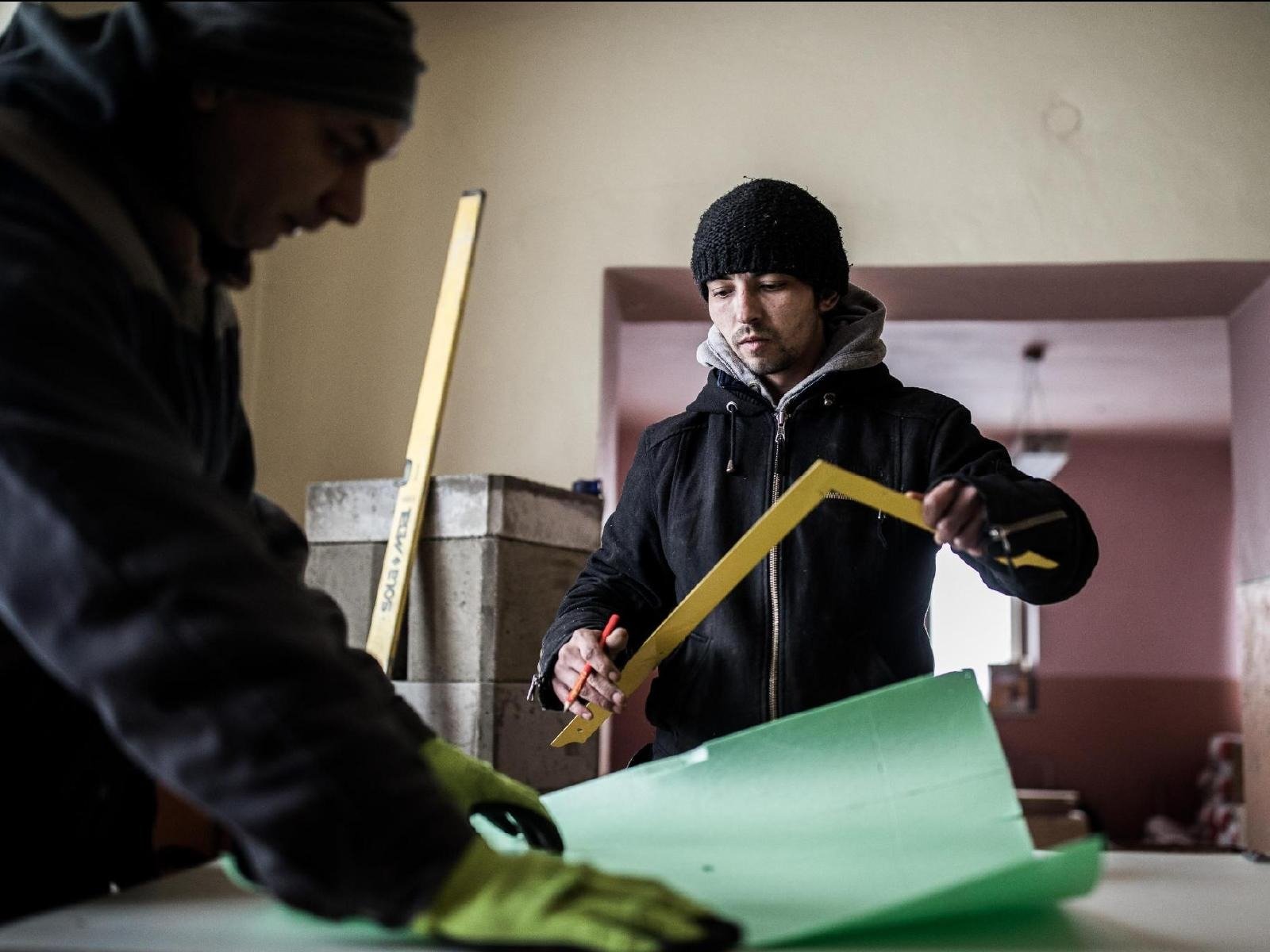The Roma Foundation for Europe welcomes the European Commission’s new Union of Skills strategy but calls for concrete action to ensure Roma workers and entrepreneurs are included.
As Europe faces labour shortages and an aging workforce, investing in Roma skills, training and businesses is not just about fairness—it is a strategic investment in Europe’s economic future.
It was encouraging to hear European Commission Executive Vice-President Roxana Minzatu specifically mention Roma in her remarks when promising investments in underprivileged groups. Now, concrete measures are needed to make these investments successful.
This week in Brussels, the Roma Foundation for Europe met with Executive Vice-President Minzatu to push for clear action on Roma workforce and business development. Roma workers contribute across industries, yet many remain locked out of formal training, funding and employment pathways. If the Union of Skills is to deliver on its promise of an inclusive workforce, it must actively invest in Roma talent.
However, the Commission’s strategy does not explicitly mention Roma. This omission risks excluding one of Europe’s youngest and fastest-growing workforce segments. More than 35% of Roma are under 15, far younger than the EU average. Without targeted investment in education, skills training and job opportunities, Europe is neglecting a crucial opportunity to strengthen its economy.
For example:
The Union of Skills highlights the need to equip people with the right skills for jobs and make qualifications more recognised and transferable across the EU. However, Roma workers—many of whom already have valuable skills in construction, crafts, agriculture, and services—continue to be excluded from these opportunities.
- 56% of young Roma are not in education, employment, or training (NEET)—nearly five times the EU average of 11.7%. Without targeted outreach and financial support, they remain underrepresented in vocational training and digital skills programmes, two key pillars of the Union of Skills.
- Lack of skills recognition prevents Roma from accessing better-paying, stable jobs. Many Roma workers have skills gained through informal work, yet these are not certified—blocking pathways to formal employment in industries already struggling with labour shortages.
- Entrepreneurship potential is being wasted. Roma are highly entrepreneurial, but systemic barriers—including lack of access to financial services due to informal housing status—mean many are unable to grow businesses or secure funding.
- Structural challenges in education—such as high drop-out rates—continue to push Roma into the informal economy. Investing in Roma teachers, expanding preschool access in Roma neighborhoods, and providing financial support to families can significantly reduce drop-out rates and prepare Roma youth for Europe’s workforce.
For the Union of Skills to deliver on its promise of an inclusive, competitive workforce, the Roma Foundation for Europe calls on the EU and Member States to:
- Include Roma in workforce investment policies with dedicated funding in programmes like the European Social Fund Plus (ESF+) and NextGeneration EU, as done for other underrepresented groups.
- Recognise informal skills and create pathways to formal employment by expanding skills validation programmes, allowing Roma workers in construction, crafts and services to obtain certification and access stable jobs.
- Expand vocational training and digital skills programmes by establishing training centers in Roma neighborhoods, providing stipends and financial aid to remove cost barriers, and developing targeted digital skills training to ensure Roma workers are included in emerging job markets.
- Combat discrimination in hiring, training, and business financing, breaking down barriers that limit Roma access to jobs and capital.
- Support Roma entrepreneurship by ensuring equal access to EU SME funding, including mentoring, networking and capital for business growth. Bureaucratic barriers must be removed to allow Roma entrepreneurs to access financial resources on equal terms.
- Create employer incentives, such as tax breaks and wage subsidies, to encourage businesses to hire and train Roma workers, particularly those transitioning from informal employment.
- Strengthen oversight by ensuring the European Parliament and Roma-led organisations play an active role in monitoring how EU workforce funds are allocated, preventing Roma exclusion.
“Roma workers and entrepreneurs are not a public finance burden—we are a smart investment. Europe cannot afford to overlook the talent, innovation, and resilience that Roma bring to its workforce and economy,” Jovanovic added.

Roma Foundation for Europe
The latest

Serbia Must Amend Missing Persons Alert System to Protect Vulnerable Adults

Constitutional Review of the Šutar Law Confirms Serious Rule-of-Law Concerns

Europe’s Growth Depends on Roma Talent
Browse by category
Campaigns
Events
Facts
Press
Voices
For media inquiries:
[email protected]Sign up here so you don’t miss out on campaign updates, upcoming events and other news from the Roma Foundation for Europe and our network.
Sign up for our newsletter